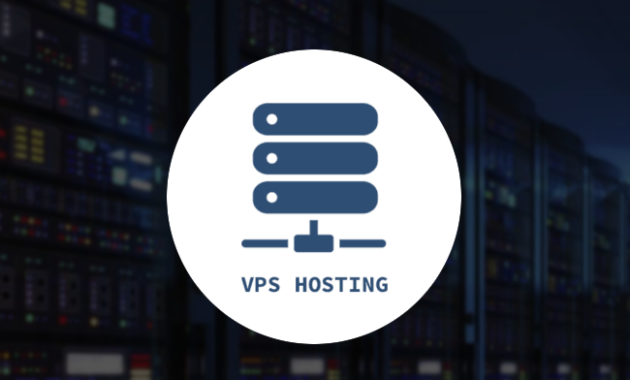In a world where 24/7 connectivity is vital, having a reliable and free VPS (Virtual Private Server) can make a huge difference. Free VPS services offer a practical way to access server resources without the high costs associated with premium hosting services. This guide covers the top free VPS options available, along with detailed benefits, feature comparisons, and practical use cases.
What is a Free VPS and How Does It Work?

A free VPS offers limited server resources—CPU, RAM, storage, and bandwidth—without charging you. Ideal for developers, startups, and learners, free VPS services allow users to test applications, host websites, or run servers without a financial commitment.
Top Benefits of a Free 24/7 VPS
- Constant Accessibility: Operate your projects any time of day without interruptions.
- Budget-Friendly: Great for users with limited funds who still need essential server capabilities.
- Scalability: Many free VPS providers offer easy upgrades to paid plans when you’re ready to scale.
- Learning Environment: Ideal for testing and development, especially if you’re experimenting with server configurations.
Top 15 Free VPS Providers Available 24/7 in 2024
Each of these VPS providers offers free or trial-based services to help users access reliable hosting with continuous availability.
1. Amazon AWS Free Tier
- Features: 750 hours of free usage for 12 months, 1 GB RAM, 1 vCPU
- Use Case: Ideal for testing applications in a cloud environment
- Limitations: Only free for 12 months
2. Google Cloud Free Tier
- Features: 1 small VM, 30 GB of HDD, 1 GB RAM, free for new users
- Use Case: Suitable for small projects and testing environments
- Limitations: Limited resource allocation and 12-month limit
3. Microsoft Azure Free Account
- Features: 1 B1S instance, 750 hours, 1 GB RAM
- Use Case: Great for learning, testing, and development
- Limitations: Limited to 12 months of free usage
4. Oracle Cloud Free Tier
- Features: Always-free tier with 2 virtual instances, 1 GB RAM each
- Use Case: Persistent small applications and websites
- Limitations: Limited to entry-level resources
5. Heroku Free Tier
- Features: Free container-based environments, integration with Git
- Use Case: Best for web apps and small-scale projects
- Limitations: Free apps sleep after inactivity
6. Alibaba Cloud Free Trial
- Features: ECS instance with 1 GB RAM and 1 vCPU, 12-month access
- Use Case: Useful for small to medium applications
- Limitations: Free for 12 months, then paid
7. Vultr Free Trial
- Features: $100 free credit, SSD storage, high-speed network
- Use Case: Ideal for high-performance testing
- Limitations: Credit expires after 30 days
8. DigitalOcean Free Trial
- Features: $200 free credit, flexible configurations
- Use Case: Suited for extensive testing and prototyping
- Limitations: Credit expires in 60 days
9. Linode Free Trial
- Features: $100 credit, high-performance VPS, SSH access
- Use Case: Perfect for temporary setups and testing
- Limitations: Free trial expires in 60 days
10. Kamatera Free Trial
- Features: 30-day free trial, customizable resources, SSD storage
- Use Case: Great for scalable projects
- Limitations: Only 30 days free
Comparison Table
| Provider | Free Resources | Use Case | Limitations | Duration |
|---|---|---|---|---|
| Amazon AWS | 1 GB RAM, 1 vCPU | Testing cloud applications | Free for 12 months | 12 months |
| Google Cloud | 1 small VM, 1 GB RAM | Small projects, testing | Limited resource allocation | 12 months |
| Microsoft Azure | 1 B1S instance | Development, learning | Limited resources | 12 months |
| Oracle Cloud | 2 VMs, 1 GB RAM | Persistent small apps | Low resources | Always free |
| Heroku | Containers, Git support | Web apps | Inactive apps sleep | Always free |
| Alibaba Cloud | ECS 1 GB RAM, 1 vCPU | Medium apps | Free for 12 months | 12 months |
| Vultr | $100 credit | High-performance testing | Credit expires in 30 days | 30 days |
| DigitalOcean | $200 credit | Extensive testing | Credit expires in 60 days | 60 days |
| Linode | $100 credit | Temporary setups | Credit expires in 60 days | 60 days |
| Kamatera | Custom resources | Scalable projects | Only free for 30 days | 30 days |
How to Secure a Free VPS and Start Using It
- Sign Up: Create an account with your preferred VPS provider.
- Select Free Tier: Choose the free plan that best meets your needs.
- Deploy Instance: Use your provider’s dashboard to deploy a virtual instance.
- Upgrade When Needed: Free tiers come with limitations; upgrade to a paid plan when your project grows.
Use Cases for Free VPS
- Web Hosting: Host small-scale websites or applications with no upfront costs.
- Learning Environment: Experiment with server commands, configurations, and applications.
- Application Development: Test new applications in a secure, isolated environment.
- Resource Management: Manage server resources and observe performance metrics without financial investment.
FAQs
- What is a free VPS?
A free VPS provides virtual server resources without cost, typically with limited resources and time-based trials. - Can I run a website on a free VPS?
Yes, free VPS plans are great for small sites, though they may lack high uptime guarantees and scalability. - How long does a free VPS last?
Most free VPS plans are temporary, lasting 1 to 12 months. Some platforms, like Oracle Cloud and Heroku, offer limited always-free options. - Is there a catch with free VPS services?
Free VPS services often have resource limitations and may prompt users to upgrade to paid plans for more capabilities. - Are free VPS services secure?
Reputable providers maintain security, but always check for limitations in security features compared to paid options.
For 24/7 availability without financial commitment, these free VPS options provide a cost-effective way to learn, test, and manage applications in a reliable environment.